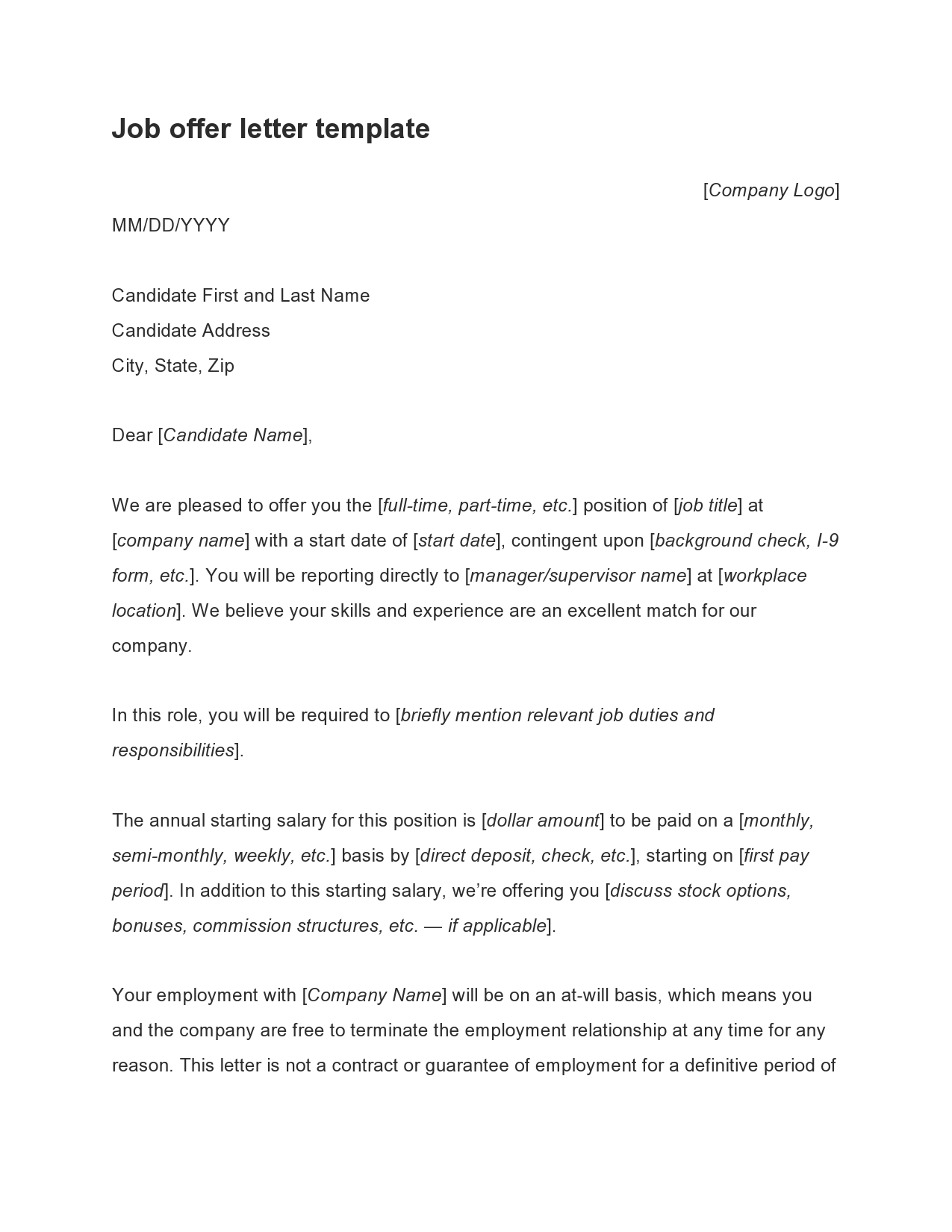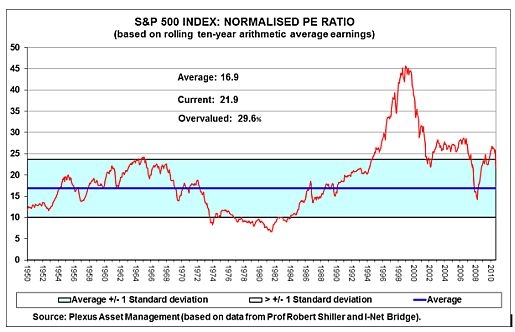Negotiating A 'Best And Final' Job Offer: Is It Possible?

Table of Contents
Understanding the Employer's Perspective on "Best and Final" Offers
Why Employers Use "Best and Final" Tactics:
Employers often use the "best and final" tactic for several reasons. It's a common strategy used to streamline the hiring process and avoid drawn-out negotiations. This approach aims to manage expectations and set clear boundaries.
- To streamline the hiring process: Lengthy negotiations can delay the onboarding of a new employee, impacting productivity and project timelines. A "best and final" offer attempts to expedite the process.
- To avoid protracted negotiations: Some employers find extended salary discussions inefficient and prefer to reach a quick agreement.
- To manage internal budgetary constraints: The "best and final" offer may reflect the company's absolute maximum budget for the role.
- To signal the company's final offer: This tactic clearly communicates the employer's position and limits the possibility of further counter-offers.
Identifying Genuine vs. Tactical "Best and Final" Offers:
Discerning whether a "best and final" offer is truly final or a negotiating tactic requires careful observation and analysis. Look beyond the words themselves and consider the context.
- Observe the employer's tone and communication style: A genuinely final offer might be delivered with more firmness and less openness to further discussion. A tactical "best and final" might leave room for subtle negotiation.
- Consider the overall hiring process and timeline: If the company has been highly motivated to fill the position quickly, a "best and final" might be a genuine reflection of their budget and urgency.
- Assess the employer's desperation to fill the role: If the role has been open for a long time, the employer might be more willing to negotiate, even if they initially presented a "best and final" offer.
Strategies for Negotiating a "Best and Final" Job Offer
Before Responding: Assessing Your Leverage:
Before reacting to a "best and final" offer, thoroughly assess your position. Understanding your leverage is crucial for a successful negotiation.
- Research salary benchmarks for your role and location: Websites like Glassdoor, Salary.com, and Payscale can provide valuable insights into industry standards.
- Consider your current financial situation and job market alternatives: Do you have other job offers? Knowing your alternatives strengthens your negotiating position.
- Identify any unique skills or experiences that make you highly valuable: Highlight the specific value you bring to the company, beyond the standard job description.
Crafting Your Counter-Offer (If Applicable):
If you decide to counter-offer, do so strategically. Avoid simply asking for a higher salary; focus on specific, justifiable increases.
- Focus on quantifiable value your skills bring: Highlight achievements and quantifiable results from previous roles to justify a higher compensation.
- Highlight specific benefits or perks instead of just salary: Negotiate for a signing bonus, better health insurance, additional vacation time, or remote work options.
- Offer alternative solutions to meet their needs and yours: Perhaps you're flexible on salary in exchange for increased vacation or professional development opportunities.
Negotiating Beyond Salary:
Salary isn't the only aspect open to negotiation. Consider the broader compensation package.
- Health insurance options and premiums: Negotiate for a better plan or lower premiums.
- Paid time off and vacation days: Aim for a more generous vacation allowance.
- Professional development opportunities: Request a budget for conferences, training, or certifications.
- Flexible work arrangements: Negotiate for remote work options or a flexible work schedule.
Knowing When to Walk Away From a "Best and Final" Offer
While negotiating is possible, sometimes walking away is the best option. Your self-worth and long-term career goals should always be prioritized.
- If the offer significantly undervalues your skills and experience: Don't settle for less than you deserve.
- If the company culture or work environment doesn't align with your values: A high salary won't compensate for a toxic work environment.
- If you have better alternative job offers: If another offer better meets your needs and expectations, it might be best to decline.
Conclusion: Successfully Navigating "Best and Final" Job Offers
Negotiating a "best and final" job offer requires preparation, professionalism, and a clear understanding of your worth. By assessing your leverage, crafting a strategic counter-offer (if necessary), and negotiating beyond salary, you can significantly improve your chances of securing a more favorable compensation package. Remember, even a "best and final" offer doesn't always mean it's truly unchangeable. Don't let a "best and final" offer intimidate you! Use these strategies to negotiate the best possible compensation and benefits package for your next career move. Successfully navigating these offers requires a confident approach and a clear understanding of your value in the job market. Remember to effectively communicate your value and explore all negotiation possibilities.

Featured Posts
-
 Stock Market Valuation Concerns Why Bof A Remains Optimistic
May 24, 2025
Stock Market Valuation Concerns Why Bof A Remains Optimistic
May 24, 2025 -
 The Best Celebrity Response Joe Jonass Take On A Couples Argument
May 24, 2025
The Best Celebrity Response Joe Jonass Take On A Couples Argument
May 24, 2025 -
 Bangladeshs European Strategy Collaboration For Sustainable Growth
May 24, 2025
Bangladeshs European Strategy Collaboration For Sustainable Growth
May 24, 2025 -
 Sandy Point Rehoboth Ocean City Beaches Memorial Day 2025 Weather Prediction
May 24, 2025
Sandy Point Rehoboth Ocean City Beaches Memorial Day 2025 Weather Prediction
May 24, 2025 -
 The Jonas Brothers A Couples Unexpected Argument And Joes Reaction
May 24, 2025
The Jonas Brothers A Couples Unexpected Argument And Joes Reaction
May 24, 2025
